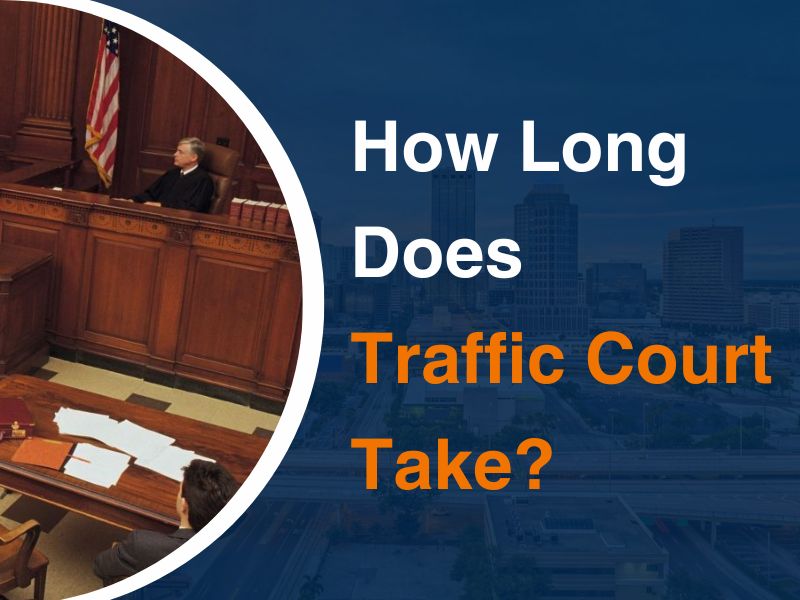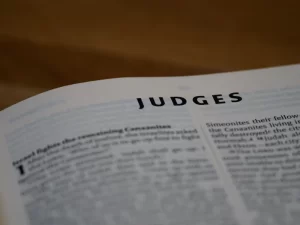How Long Does Traffic Court Take?
Traffic court can be a frustrating and anxiety-inducing experience. When you receive a traffic citation, your first thought is probably “how long is this going to take?” Unfortunately, there is no simple answer. The duration of traffic court can vary widely depending on the specific circumstances of your case. However, by understanding what to expect and taking steps to prepare, you can help minimize the time spent resolving your traffic violation.
What to Expect at Traffic Court
Traffic court proceedings typically involve two main stages: the arraignment and the trial.
The Arraignment
The arraignment is your first court appearance after receiving a traffic citation. At the arraignment:
Reading the Charges
The judge will summarize the traffic charges against you and the associated fines/penalties if you are found guilty.
Entering a Plea
You will be asked to enter a plea of either guilty, not guilty, or no contest. Pleading not guilty means taking your case to trial.
Setting a Trial Date
If you plead not guilty, the judge will select a future date for your trial. This could be weeks or months away, depending on the court’s schedule.
The Trial
If you plead not guilty, your case will proceed to trial on the scheduled date. At the trial:
Waiting for Your Case
You may have to wait hours or longer for your case to be called, depending on the court’s docket. Have patience.
Presenting Your Case
You and the officer will have the chance to present evidence and testimony. The judge will decide if you are guilty based on the relevant facts.
The Judge’s Decision
If found guilty, you will be assessed fines and penalties. The judge may allow you to explain mitigating circumstances.
Factors Affecting Traffic Court Duration
Several key factors impact how long you can expect to spend in traffic court:
Type of Traffic Violation
More serious offenses like DUI require longer trials and lead to lengthier proceedings. Speeding tickets are generally fast open-and-shut cases.
Jurisdiction and Caseload
Courts in major metro areas have heavy caseloads, leading to more scheduling delays. Small town courts tend to handle cases more quickly.
Contesting the Ticket
Pleading guilty and paying the ticket generally resolves things most quickly. Contesting the charges requires more court resources.
Mitigating Circumstances
Introducing extenuating circumstances adds time but may reduce fines. Be prepared to document claims.
Requesting a Continuance
Asking to reschedule your hearing to a later date prolongs the process but may buy you time.
Case Complexity
The complexity of your case plays a significant role in how long traffic court takes. Simple infractions may be resolved quickly, while more complex cases with multiple violations or legal issues can prolong the process.
Court Backlog
The backlog of cases in your local traffic court can also impact the timeline. If the court is busy, it may take longer to schedule your hearing and receive a verdict.
Appeals and Postponements
In some instances, either party may request an appeal or a postponement, further extending the duration of the case.
Tips for Navigating Traffic Court Efficiently
While you can’t control every factor, you can take steps to avoid unnecessary delays and minimize the time your traffic court experience takes:
Come Prepared
Bring relevant documents, proof, notes, etc. Being organized shows respect for the court’s time.
Dress Respectfully
Wear clean, neat clothing to give a good impression. Judges don’t look kindly on defendants who dress inappropriately.
Be Punctual
Arrive well before your scheduled hearing time. You may need to go through security, check in, and find parking.
Maintain Your Composure
Keep calm in court and be patient even if proceedings move slowly. Outbursts or arguing will only extend the process.
Follow Court Etiquette
Be deferential to the judge, avoid cell phone use, and adhere to any other rules of courtroom conduct.
While it’s frustrating dealing with traffic violations, understanding what to expect at traffic court and taking steps to prepare can help you navigate the proceedings as efficiently as possible. With an attentive attitude and respect for the process, you can minimize delays and get resolution quickly.
Conclusion
The duration of traffic court depends on several variables, but you can generally expect at least a couple hours if simply paying a fine or much longer if pleading not guilty and going to trial. Come prepared, be patient, and maintain court decorum to avoid unnecessary delays. While the experience is rarely pleasant, being proactive helps ensure efficient resolution of your traffic citation.
FAQs
How long does a traffic court trial take?
Traffic court trials can take anywhere from 30 minutes to several hours depending on the complexity of the case, evidence being presented, and how crowded the docket is.
What is the shortest traffic court can take?
The quickest traffic court appearances take only 10-15 minutes if you plead guilty or no contest and pay the ticket immediately without contesting it.
How long does a traffic court arraignment take?
Traffic court arraignments typically last about 30 minutes as you are read the charges, enter a plea, and if pleading not guilty, have a trial date set.
What can I do to make traffic court go faster?
Steps like having your paperwork ready, dressing nicely, and maintaining court decorum show respect for the court’s time and help traffic court move along efficiently.
How much notice will I have for my traffic court date?
You will generally receive at least 2-4 weeks notice of your initial traffic court arraignment date, giving you time to prepare and request leave from work if needed.







